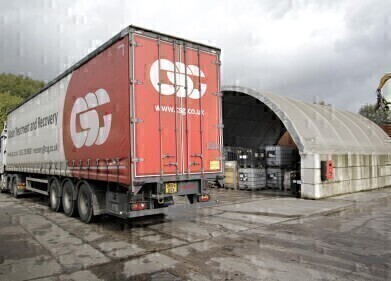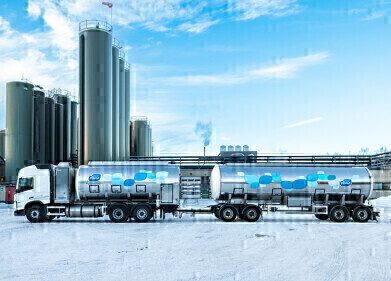Hazardous Waste
Methane-Mopping Bacteria Could Help Environment
Sep 10 2015
A team of scientists at the University of East Anglia (UEA) has discovered a new form of bacteria which could be instrumental in reducing the amount of methane released into our atmosphere on a day-to-day basis.
While methane itself is a valuable and useful commodity for creating energy, heat and light, it can also be a harmful by-product of a range of activities, such as rice production, gas and oil mining, waste management and livestock farming. Though it does occur naturally from sources such as wetlands and similar environments, it’s estimated that around 50% of the methane being emitted into our atmosphere comes from manmade sources.
The impact of such releases on global warming is devastating. In fact, Professor Colin Murrell, who works at the UEA’s School of Environmental Sciences and who is a co-author of the paper on the topic, believes that methane might have an effect 20 times greater than the much-slated carbon dioxide (C02) emissions which the EU and national governments are so keen to clamp down on.
Bacteria as a Solution
The new research from Professor Murrell and his colleagues has isolated a new type of copper storage protein, known as Csp1, which can be found in abundance in an array of bacteria – especially in methanotrophs.
This particular family of proteins appears to be adept at storing metals in a manner previously unheard of. Since it’s been common knowledge for a number of years that copper is integral to oxidising methane in a biological manner, Professor Murrell and his team will aim to bind the methanotrophs to large amounts of copper in order to oxidise methane in high quantities.
“To oxidise methane, methanotrophs use an enzyme called methane monooxygenase whose essential co-factor is copper,” explained Professor Murrell. “As copper is essential for the oxidation of methane, all potential applications based on this reactivity require an understanding of how methanotrophs acquire and store copper. This new family of proteins adds a new layer to our understanding of this complex process.”
Bacteria to the Rescue Again
This is not the first time that bacteria – traditionally thought of as an unwanted pollutant in a substance – has been used for beneficial means. Last year, we brought you news of how one innovative aquaculture environment used bacteria to control ammonia levels in the water. As one of the most important factors in the development and health of marine life, monitoring and controlling ammonia levels is of paramount value in maintaining biodiversity in aquatic habitats.
Meanwhile, the proliferation of biogas plants (especially across the United States) are attempting to turn another problem into a solution – this time with methane. The Blue Mountain Biogas Plant in Utah has developed a method of turning pig manure into power. Through the method of anaerobic digestion of the manure, the plant will convert the resulting methane into electricity which can serve as a useful commodity for the local community.
Events
May 13 2024 Munich, Germany
May 23 2024 Beijing, China
May 23 2024 Beijing, China
Jun 10 2024 Algiers, Algeria
Jun 10 2024 Frankfurt, Germany














